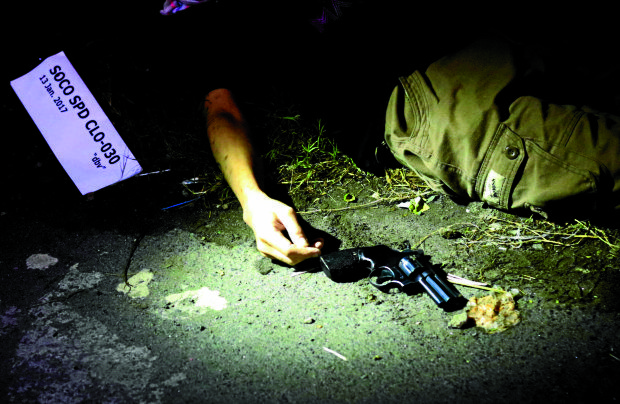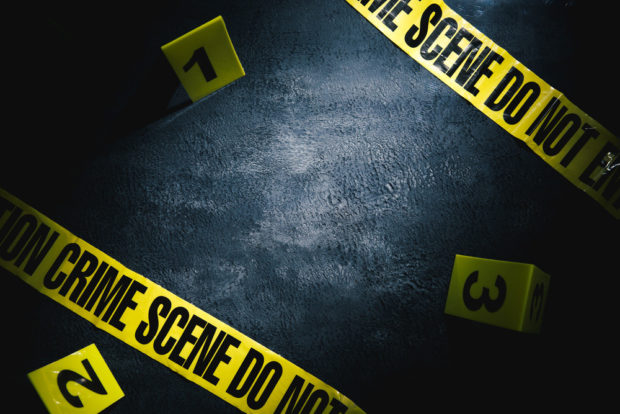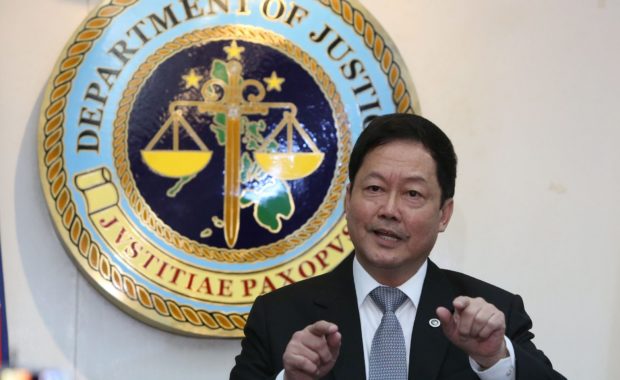Police protocols not followed in many drug war cases under review — DOJ
MANILA, Philippines — Police protocols were not followed in many of the cases under review by the Department of Justice’s (DOJ) drug war panel, DOJ Undersecretary Adrian Sugay said Tuesday.
The DOJ said it will endorse to the National Bureau of Investigation (NBI) 52 cases to determine the criminal liability of some 154 police officers involved in the death of 52 drug.
“Sa aming nakita, karamihan dito sa mga kaso na ito ay kailangan tingnan nang mabuti at mukhang may mga proseso o yung mga tinatawag na police protocol na hindi natupad,” Sugay said in a televised briefing.
(From what we saw, many of these cases must be carefully reviewed because it appears that there were processes or what we call police protocols that were not followed.)
This was similar to what DOJ Secretary Menardo Guevarra reported to the United Nations Human Rights Council in February this year — that half of the anti-drug operations reviewed by the department “failed to follow standard protocols pertaining to coordination with other agencies and the processing of the crime scene.”
Sugay said it is up to the NBI whether or not charges will be filed against the erring police officers.
“Doon sa mga pagkakataon na sa tingin nila ay kulang pa at kailangan pang imbestigahan at magkalap pa ng ebidensya ay nasa NBI na yun,” he added.
(In instances where they think further investigation and more evidence are needed, that’s also up to the NBI.)
Apart from administrative liability established by the Philippine National Police, Sugay said police officers involved in the death of drug suspects may also face murder or homicide complaints.
“Pwede silang matanggal sa serbisyo, maaari silang demotion, suspension, depende yan sa pagkagrabe ng nangyari,” Sugay said.
(They can be removed from service, demoted or suspended, depending on the gravity of what they did.)


